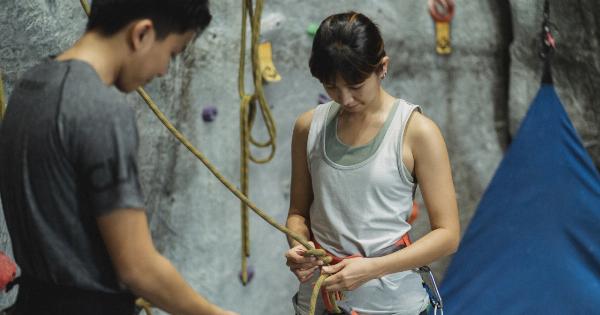Everyone needs protection at some point in their lives. It could be from a threat at work, an abusive partner, or even someone on the street.
But what happens when you want to avoid finding a protector? Perhaps you prefer to be self-reliant or simply want to avoid getting involved with someone who may not have your best interest at heart. Whatever your reasons, there are ways to avoid finding a protector.
1. Build Your Confidence
One of the most effective ways to avoid finding a protector is to build your confidence. When you feel confident in yourself and your abilities, you are less likely to seek protection from others.
Confidence can come from many different sources, such as achieving a goal, learning a new skill, or simply taking care of yourself. When you are confident, you are more likely to take control of your life and make decisions that are in your best interest.
2. Learn Self-Defense
Learning self-defense is another way to avoid finding a protector. When you are able to defend yourself, you feel less vulnerable and more in control of your safety.
There are many ways to learn self-defense, including taking a class, watching online tutorials, or practicing with a friend. Knowing that you can defend yourself in a dangerous situation can give you the confidence you need to avoid seeking protection from someone else.
3. Practice Awareness
Being aware of your surroundings is an important part of avoiding the need for a protector. When you are aware of what is going on around you, you are better able to avoid dangerous situations.
This includes being aware of potential threats, such as someone following you or someone acting suspiciously. By practicing awareness, you can avoid situations that may require the assistance of a protector.
4. Set Boundaries
Setting boundaries is another way to avoid finding a protector. When you set clear boundaries with others, you are less likely to become dependent on them for protection. This means knowing your limits and communicating them to others.
For example, if someone is being abusive, it is important to set a boundary and let them know that it is not acceptable. By setting boundaries, you can avoid situations that may require the assistance of a protector.
5. Build a Support System
Building a support system is another way to avoid finding a protector. When you have people in your life that you can rely on, you are less likely to seek protection from someone else. This can include friends, family members, or even a therapist.
By building a support system, you can avoid becoming dependent on a protector for your emotional needs.
6. Trust Your Intuition
Your intuition is an important tool when it comes to avoiding the need for a protector. When you trust your intuition, you are better able to recognize potential threats and avoid them before they become dangerous.
Your intuition can also help you to make decisions that are in your best interest, such as avoiding situations or people that may not be safe.
7. Take Responsibility for Your Safety
Taking responsibility for your safety is another way to avoid finding a protector. When you take responsibility for your safety, you are less likely to rely on someone else for protection.
This means making smart choices, such as avoiding dangerous situations and being aware of potential threats. By taking responsibility for your safety, you can avoid becoming dependent on a protector for your physical needs.
8. Avoid Being a Victim
Avoiding the victim mindset is also important when it comes to avoiding the need for a protector. When you see yourself as a victim, you are more likely to seek protection from others.
This means believing in yourself and your abilities, and refusing to let others take advantage of you. By avoiding the victim mindset, you can avoid becoming dependent on a protector for your emotional needs.
9. Practice Self-Care
Practicing self-care is another way to avoid finding a protector. When you take care of yourself, you are less likely to seek emotional support from others. This can include things like getting enough sleep, eating healthy, and exercising regularly.
By practicing self-care, you can avoid becoming dependent on a protector for your emotional needs.
10. Learn to Manage Stress
Learning to manage stress is also important when it comes to avoiding the need for a protector. When you are able to manage stress, you are less likely to become overwhelmed and seek emotional support from others.
This can include things like practicing relaxation techniques, such as meditation or yoga, or seeking professional help if needed. By learning to manage stress, you can avoid becoming dependent on a protector for your emotional needs.
Conclusion
Avoiding the need for a protector is not always easy, but it is possible.
By building confidence, learning self-defense, practicing awareness, setting boundaries, building a support system, trusting your intuition, taking responsibility for your safety, avoiding the victim mindset, practicing self-care, and learning to manage stress, you can avoid becoming dependent on a protector for your emotional and physical needs. Whether you choose to implement one or all of these strategies, remember that you have the power to take control of your life and avoid the need for a protector altogether.































